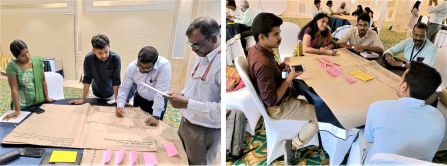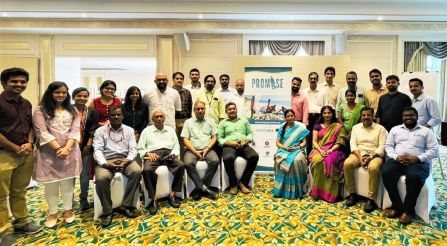INDIA: First Policy Roundtable on marine litter prevention in India
| Date |
Date
|
The first policy roundtable on marine litter prevention in India was conducted on Tuesday, 05 April 2022, in Thiruvananthapuram, Kerala.
Dr. V.P. Joy - Chief Secretary of the Government of Kerala inaugurated the event which was attended by 35 stakeholder representatives working in the field of waste management and marine litter prevention. They included Government bodies, Kerala Coastal Zone Management, Department of Tourism, Kerala State Coastal Area Development Corp., Suchitwa Mission representatives, environmental journalists, academia, and international development organizations.
In this first meeting, participants were divided into four groups and discussed the current challenges and gaps in policies for India to prevent marine litter. The participant groups identified four key challenges, which are:
• Lack of EPR schemes and policies to hold the private sector accountable
• Lack of awareness on waste management amongst stakeholders
• Lack of regulatory authority for waste management at the state level,
• Lack of policies focusing on marine litter from tourism and fishery waste.
The participants further worked on challenge detailing, actors mapping, and also brainstormed potential solutions.
They elaborated that, there is a lack of stringent evaluation and monitoring mechanisms and that the State Pollution Control Board of Kerala (SPCB) is not yet completely oriented towards the ERP mechanism, which leads to significant delays in the process. When it comes to awareness, the participants say that there is a lack of coordination between NGOs, institutions and other national and international stakeholders while planning activities and releasing awareness-rising material. Another important issue which was highlighted is that the roles and responsibilities for leadership in waste management are split across a number of Government ministries at the State level leaving little opportunity to develop a coordinated approach.




